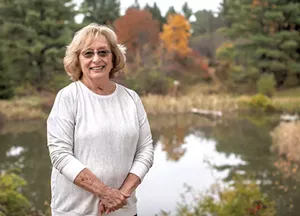
Some years ago, a 25-year-old technical writer named Jack was hospitalized with severe pneumonia that caused him episodes of respiratory arrest. Despite treatment with constant oxygen, he still suffered seizures when there was an insufficient supply to his brain. Anita, his primary care nurse, was a steady presence in his life. One day she told Jack she was taking a long weekend to celebrate a birthday and other nurses would see to his care. While she was gone, Jack experienced severe respiratory arrest, flatlined and had to be resuscitated. When he was revived, Jack described the sensation of meeting Anita in a beautiful, bucolic setting. He recalled that Anita gently told him to return to where he’d come from and asked him to find her parents and relay that she was sorry to have wrecked the red sports car. Then she walked away. When Jack recounted this vivid experience to his temporary nurse, she gave him a shocked look and left the room. Later, he learned that Anita had died over the weekend when she crashed a red MGB her parents had given her for her birthday. Is your hair standing on end? Did a shiver quiver your spine? What Jack went though was a near-death experience, or NDE for short — what happens when you “die” and come back. It’s the grim reaper giving you a do-over, a knock on death’s door that goes unanswered, finding heaven’s gate locked. Not everyone who has an NDE has visions. But nearly one in five people do, and some of their tales beggar belief. Jack’s story was recorded by Bruce Greyson, a professor emeritus of psychiatry and neurobehavioral sciences at the University of Virginia School of Medicine who has been studying NDEs for 50 years. He is the author of the 2021 book After: A Doctor Explores What Near-Death Experiences Reveal About Life and Beyond. “I have many anecdotes about experiencers who accurately reported seeing, while they were completely unconscious, very surprising and unpredictable things going on around their unconscious bodies — like a nurse’s unmatched shoelaces or a doctor’s erratic and unexpected behavior during an operation,” Greyson told Seven Days. What freezes his follicles are cases such as Jack’s, he said, when “the experiencer sees a deceased person who was not yet known to have died.” NDEs are common when people come close to death or face intense threats or…
Vermonters Share Their Near-Death Experiences

